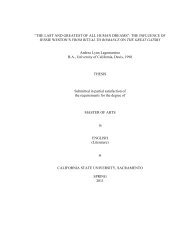COMMUNITY ACTIVISM IN OAK PARK: COMPETING AGENDAS ...
COMMUNITY ACTIVISM IN OAK PARK: COMPETING AGENDAS ...
COMMUNITY ACTIVISM IN OAK PARK: COMPETING AGENDAS ...
You also want an ePaper? Increase the reach of your titles
YUMPU automatically turns print PDFs into web optimized ePapers that Google loves.
them. And the middle-class don’t usually participate in agendas for change unless the<br />
changes are in their interest and benefit them. It is in the interest of the middle-class to<br />
solve problems and they thus will reach out to solve community issues after the social<br />
issues are well noticed.<br />
The middle-class has much political power in working to revitalize low-income<br />
communities, and there is a widespread belief that low-income neighborhoods will be<br />
improved through beautification projects and increased economic development. But,<br />
The rubric of ‘revitalization’ is overtly falsifying. It’s a word<br />
whose positive connotations reflect nothing other than ‘the sort of<br />
middle-class ethnocentrism that views the replacement of lowstatus<br />
groups by middle-class groups as beneficial. The word<br />
‘revitalization’ conceals the very existence of the inhabitants<br />
already living in the dilapidated neighborhoods that are targeted<br />
for renovation. [Deutsche 1986:69]<br />
Revitalization projects have considerable political appeal in local communities and get a<br />
steady flow of grants for such projects. This clearly indicates that the local government is<br />
receptive to pressures from community-based organizations for home improvement loans,<br />
code enforcement activities, beautification projects, and street improvements.<br />
Additionally, through the involvement that middle-class neighborhood residents have in<br />
planning and implementing neighborhood revitalization projects, the local government<br />
comes to be viewed as a partner, not as an adversary by them.<br />
Wacquant and Wilson (1989:15) explain that, for now, not only are ghetto<br />
residents, as before, dependent on the will and decisions of outside forces that rule the<br />
field of power—the mostly white dominant class, corporations, realtors, politicians, and<br />
welfare agencies—they have no control over and are forced to rely on services and<br />
127



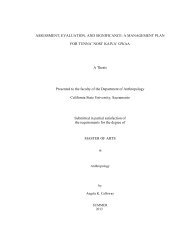
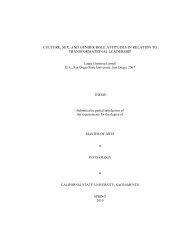
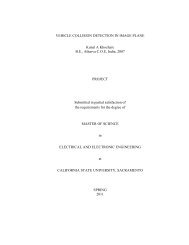
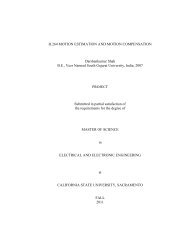
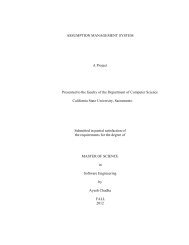
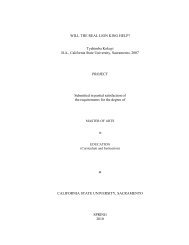
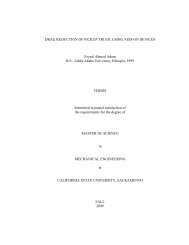

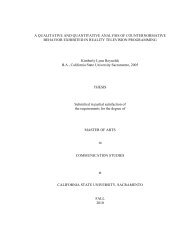
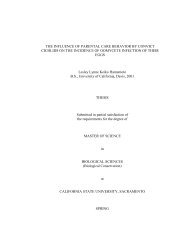
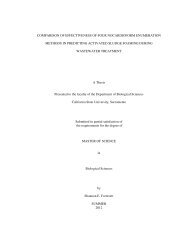
![Completed Thesis to Grad Studies[Final3].pdf](https://img.yumpu.com/17538645/1/190x245/completed-thesis-to-grad-studiesfinal3pdf.jpg?quality=85)
